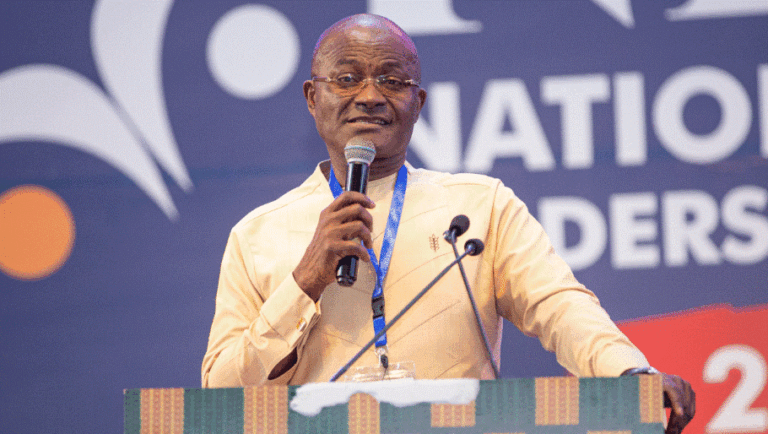1.No one in Ghana deserved to boogie more at the end of year parties this season than Finance Ministry staff and their sidekicks in the Bank of Ghana (BoG).
2. They have earned the right to be triumphant: some analysts say that the Cedi enjoyed its best performance in over 30 years.
3. Readers of this site know that some of us believe that the Cedi became overvalued due to over-interference by the BoG, but that is an entirely separate debate.
4. For now, the issue is that the Cedi’s managers promised to hold it down and they found the resources and will to do it. Full stop.
5. For me that is a political outcome. Political leaders stepping up to “political accountability”. In the katanomics framework that I swear by though, that’s not everything. There is also POLICY ACCOUNTABILITY.
6. In this context, policy accountability means ensuring that exchange rate policy actually supports economic development and social welfare, while obsessing as much over how stability is sustained as over which rate is desirable.
7. Let me illustrate this in the context of industrialisation. There is a whole lot of research that shows that most of the countries that succeeded in industrialisation (especially in Asia) did so by attracting multinational manufacturers who brought capital, technology, knowledge, and discipline.
8. Ghana, like some other African countries, also attracted multinational manufacturers after independence. Some of them had been around during colonial times but mostly in trading. They shifted focus to manufacturing when post-independence leaders emphasised industrial transformation.


We should dance to the Cedi’s beat but remember Unilever
1.
No one in Ghana deserved to boogie more at the end of year parties this season than Finance Ministry staff and their sidekicks in the Bank of Ghana (BoG).
2. They have earned the right to be triumphant: some analysts say that the Cedi enjoyed its best performance in over 30 years.
3. Readers of this site know that some of us believe that the Cedi became overvalued due to over-interference by the BoG, but that is an entirely separate debate.
4. For now, the issue is that the Cedi’s managers promised to hold it down and they found the resources and will to do it. Full stop.
5. For me that is a political outcome. Political leaders stepping up to “political accountability”. In the katanomics framework that I swear by though, that’s not everything. There is also POLICY ACCOUNTABILITY.
6. In this context, policy accountability means ensuring that exchange rate policy actually supports economic development and social welfare, while obsessing as much over how stability is sustained as over which rate is desirable.
7. Let me illustrate this in the context of industrialisation. There is a whole lot of research that shows that most of the countries that succeeded in industrialisation (especially in Asia) did so by attracting multinational manufacturers who brought capital, technology, knowledge, and discipline.
8. Ghana, like some other African countries, also attracted multinational manufacturers after independence. Some of them had been around during colonial times but mostly in trading. They shifted focus to manufacturing when post-independence leaders emphasised industrial transformation.
9. They include the likes of Unilever, Nestle, Cadbury, Guinness, PZ, etc. Even some automotive and electronics companies came in. Philips, Sanyo, Volkswagen, Siemens, Leyland, Fiat, IIT, and Tata.
10. If Ghana (like Nigeria) can be said to have failed whereas Taiwan, Korea, Vietnam, and Thailand succeeded in boosting the presence of multinationals, then learning the ropes themselves, and finally building up local champions to take over, a big part of the picture is summed up in the behaviour of the exchange rate.
11. To probe further, I gathered and analysed 30 years of financial and some operational data on Unilever’s business in Ghana. I can’t deny that my choice of period wasn’t influenced by the timeline of the Cedi’s success being celebrated today.
12. I got interested in this question when I saw that Unilever Ghana now imports Rexona deodorant from other Group affiliates in Italy and then re-export them all over the region. Its numbers are looking good again after a massive plunge during the COVID years but performance now seems to be driven by trade instead of manufacturing.
13. In 2014, Unilever Ghana doubled down on expanding manufacturing plants to make more personal care and beauty products.
The company has been shifting in that direction for years, moving slowly away from its historic focus on food.

14. Per its corporate vision of that time, Ghana ought by now to have become a regional hub making the likes of Rexona deodorant for regional sales. That didn’t happen. Even good old “Omo” is now being imported from all over the place by traders.
15. So, I decided to treat Unilever as a lagging bellwether for industrialisation in Ghana to the extent that it is a “loyal multinational” that kept faith with Ghana through thick and thin.
16. The central issue, however, is: did Unilever succeed in growing and compounding value (for all its stakeholders) over its 60 years of manufacturing history?
17. The headline answer is that it saw negative hard-currency growth over 30 years.
18. Unilever’s revenue in 1994 was $111 million. During the oil boom era of 2010 to 2013, it hovered in $180 million territory (proving that divestments of group entities isn’t the primary issue.) In 2024, it barely crossed $65 million.
19. The revenue compound annual growth rate (CAGR) is MINUS 1.74% over 30 years.

20. A part of the story is explained by the company being forced to abandon more complex industrial operations in textiles, timber processing, heavy machinery etc. over time. But a good deal of it is just pure capital erosion.
21. Shareholder equity in 1998 was $54.2 million. It peaked at $64.3 million and then sank to a mere $6.3 million in 2022. Today, it is around $15.9 million.

22. But it wasn’t due to underinvestment, either. The company’s returns actually crashed during macro-stress periods following considerable reinvestment.

2018 shows extraordinary capital expansion (likely retooling / plant upgrade cycle). Yet profitability collapsed after the expansion push. By 2020, Capex falls below depreciation, indicating:
defensive retrenchment
cash preservation mode
Then dividends go to zero in 2020, to reinforce the distress response. This is a company being punished for good behaviour. Any surprise then that despite Africa’s surging demographics, Unilever no longer lists a single African region amongst its top 24 strategic markets where it intends to drive growth and performance through its beauty, personal care, and wellness segments?

23. Meanwhile, average net margin over the 30-year period sat around 5.5%. In 2020, it went all the way down to MINUS 11% (ROE: minus 139%).

If you think the 2020 number is just a super-rare one-off due to the COVID-19 black swan, think again. Such periods of extreme stress in the Unilever Ghana business actually tends to recur. In 2003 – 2004, for instance, operating profit crashed by nearly 55%.

24. Consider that the Unilever Group has had an underlying operating margin for the last decade of more than 16%. Peer benchmark long-term margins for global manufacturers that compounded value in the successful Asian economies were typically in the 12% to 15%. In tech, it even exceeds 45%.
25. The capital market verdict has been equally sobering. Unilver’s market cap grew from $19 million in 2000 to over $700 million in 2008 then began a long descent to less than $120 million today.
26. The key insight in all of this is the use of the dollar to gauge returns. That is why it is an exchange rate phenomenon. For example, in Ghana Cedis, Unilever’s market cap has actually grown by over 50% since 2008. The tragicomic situation is that an overvalued exchange rate actually hurts Unilever’s steadily growing trade and re-export business. All they crave for is currency STABILITY.
29. The exchange rate makes Ghana a bad bet for global multinationals. Which is why their commitment has been so lukewarm over the years. Yet, the historical reality is that multinationals like Unilever have tended to treat workers much better and offered upskilling opportunities that the rest of the private sector rarely offer.

30. And therein lies the real policy challenge: sustaining a long-run STABLE exchange rate.


























